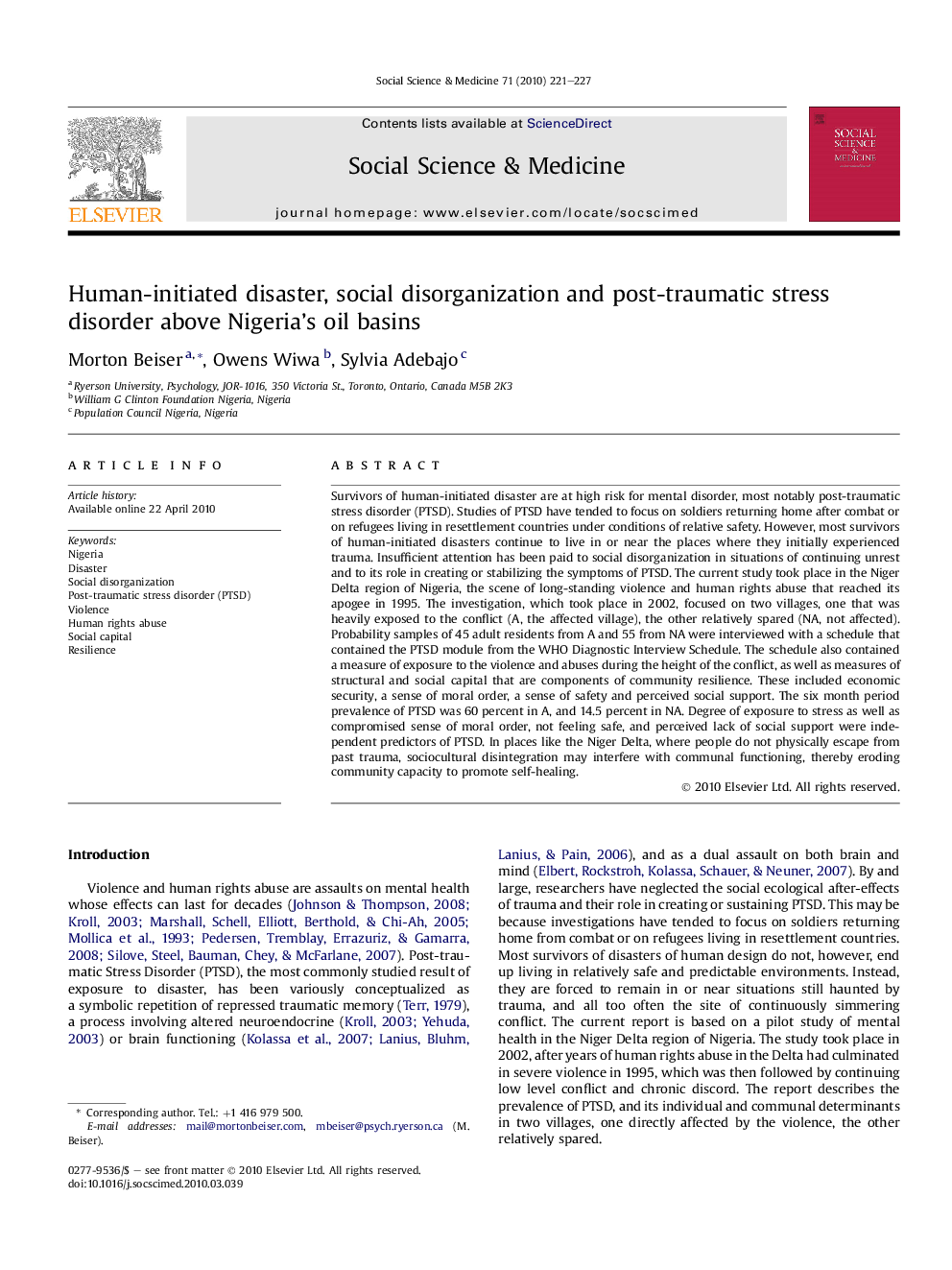| کد مقاله | کد نشریه | سال انتشار | مقاله انگلیسی | نسخه تمام متن |
|---|---|---|---|---|
| 953023 | 927563 | 2010 | 7 صفحه PDF | دانلود رایگان |

Survivors of human-initiated disaster are at high risk for mental disorder, most notably post-traumatic stress disorder (PTSD). Studies of PTSD have tended to focus on soldiers returning home after combat or on refugees living in resettlement countries under conditions of relative safety. However, most survivors of human-initiated disasters continue to live in or near the places where they initially experienced trauma. Insufficient attention has been paid to social disorganization in situations of continuing unrest and to its role in creating or stabilizing the symptoms of PTSD. The current study took place in the Niger Delta region of Nigeria, the scene of long-standing violence and human rights abuse that reached its apogee in 1995. The investigation, which took place in 2002, focused on two villages, one that was heavily exposed to the conflict (A, the affected village), the other relatively spared (NA, not affected). Probability samples of 45 adult residents from A and 55 from NA were interviewed with a schedule that contained the PTSD module from the WHO Diagnostic Interview Schedule. The schedule also contained a measure of exposure to the violence and abuses during the height of the conflict, as well as measures of structural and social capital that are components of community resilience. These included economic security, a sense of moral order, a sense of safety and perceived social support. The six month period prevalence of PTSD was 60 percent in A, and 14.5 percent in NA. Degree of exposure to stress as well as compromised sense of moral order, not feeling safe, and perceived lack of social support were independent predictors of PTSD. In places like the Niger Delta, where people do not physically escape from past trauma, sociocultural disintegration may interfere with communal functioning, thereby eroding community capacity to promote self-healing.
Journal: Social Science & Medicine - Volume 71, Issue 2, July 2010, Pages 221–227